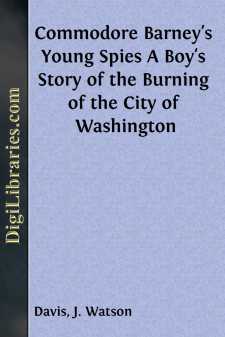Categories
- Antiques & Collectibles 13
- Architecture 36
- Art 48
- Bibles 22
- Biography & Autobiography 813
- Body, Mind & Spirit 142
- Business & Economics 28
- Children's Books 14
- Children's Fiction 11
- Computers 4
- Cooking 94
- Crafts & Hobbies 4
- Drama 346
- Education 46
- Family & Relationships 57
- Fiction 11829
- Games 19
- Gardening 17
- Health & Fitness 34
- History 1377
- House & Home 1
- Humor 147
- Juvenile Fiction 1873
- Juvenile Nonfiction 202
- Language Arts & Disciplines 88
- Law 16
- Literary Collections 686
- Literary Criticism 179
- Mathematics 13
- Medical 41
- Music 40
- Nature 179
- Non-Classifiable 1768
- Performing Arts 7
- Periodicals 1453
- Philosophy 64
- Photography 2
- Poetry 896
- Political Science 203
- Psychology 42
- Reference 154
- Religion 513
- Science 126
- Self-Help 84
- Social Science 81
- Sports & Recreation 34
- Study Aids 3
- Technology & Engineering 59
- Transportation 23
- Travel 463
- True Crime 29
On the Kentucky Frontier A Story of the Fighting Pioneers of the West
by: J. Watson Davis
Description:
Excerpt
CHAPTER I.
It is my purpose to set down what I saw during such time as Simon Kenton gave me my first lessons in woodcraft and it is well to make the statement in advance in order that others may be deprived of the opportunity of saying what would sound disagreeable:—that the pupil was for a time so dull that one less patient and painstaking than Kenton would have brought the lessons to a speedy close.
That which now seems the most difficult is to decide how I shall begin this story of the little which I did on the Kentucky frontier during the year of grace 1778, and I can hit upon no plan which promises better success than that of copying here what I read in a printed book long years after I, a green lad, set out to do my little share toward bringing peace and a sense of security to the settlers who were striving to make homes for themselves and their families in what was then known as the colony of Virginia.
I make use of such a beginning because it appears to me as if the wise man who thus explains the condition of affairs among us at that time, tells in a few lines what I might struggle vainly over many pages of paper to put into form one-half so concise and satisfactory:
"With the single exception of Dunmore's expedition in 1774, hostilities west of the Alleghanies were nothing but a series of border conflicts, each little party acting upon its own responsibility, until 1778, when Major George Rogers Clarke led a regular expedition against the frontier posts of the enemy in the wilderness. Clarke first went toward Kentucky in 1772, when he paddled down the Ohio with the Reverend David Jones, then on his way to preach the Gospel to the Western Indians.
"He was at once impressed with the importance of that fertile region, and the necessity of making it a secure place for settlements. His mind was clear and comprehensive; his personal courage of the truest stamp; his energies, physical and mental, always vigorous, and he soon became an oracle among the backwoods-men. During the years 1775 and 1776, he traversed vast regions of the wilderness south of the Ohio, studied the character of the Indians chiefly from the observations of others, and sought to discover a plan by which a tide of emigration might flow unchecked and secure into that paradise of the continent.
"He soon became convinced that the British garrisons at Detroit, Kaskaskia, and Vincennes, were the nests of those vultures who preyed upon the feeble settlements of the west, and deluged the virgin soil with the blood of the pioneers. Virginia, to which province this rich wilderness belonged, was at that time bending all her energies in advancing the cause of independence within her borders east of the Alleghanies, and the settlers west of the mountains were left to their own defense.
"Major Clarke, convinced of the necessity of reducing the hostile forts in the Ohio country, submitted a plan for the purpose to the Virginia Legislature, in December, 1777. His scheme was highly approved, and Governor Henry and his council were so warmly interested that Major Clarke received two sets of instructions, one public, ordering him to 'proceed to the defense of Kentucky,' the other private, directing an attack upon the British fort at Kaskaskia....





